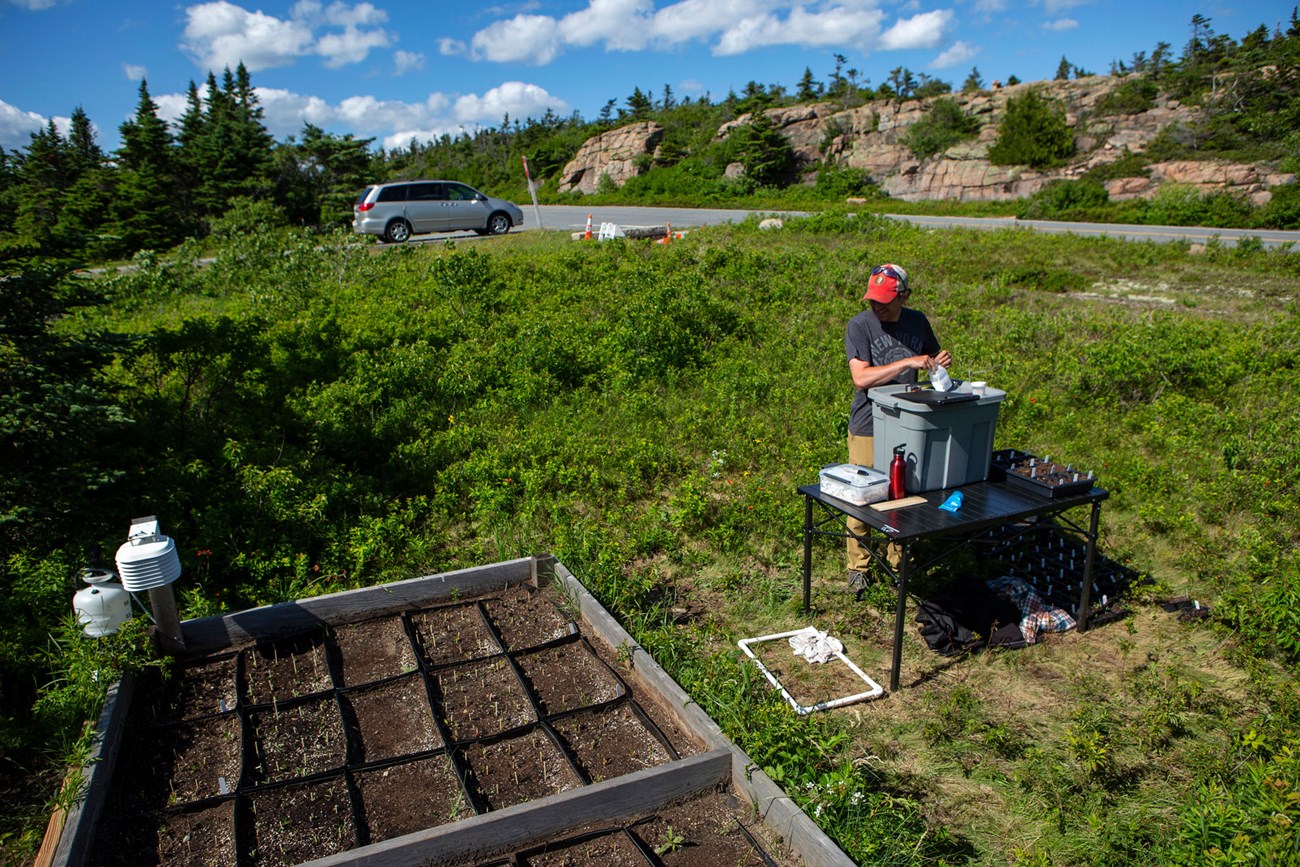
Partners-in-Science at the SummitAcadia National Park, Friends of Acadia and the Schoodic Institute are working together to evaluate new vegetation plantings and soil replacement on Cadillac Mountain summit. This provides managers with critical information on how to direct change toward desired future conditions. . Friends of Acadia and partners are beginning to explore what it would take to expand this restoration to other park summits.This work wouldn’t be happening/successful without the support and involvement of our partners. Schoodic Institute provides science support and Friends of Acadia provide key financial support and capacity including communication, fundraising, boots on the ground. A New ApproachAs part of this partnership, the park and its partners are currently exploring a new approach framework for managing park ecosystems. We call it R.AD for short. R.A.D. guides us to choose when and where to
How You Can HelpYou can help protect Acadia's fragile summits by practicing Leave No Trace principles including staying on designated trails and walking only on hardened surfaces. You can also help the park, yourself, and the people and pets you care about by knowing your limits when hiking and paying attention to weather and trail conditions. Hiking safety often comes down to simple, smart choices and being prepared. Learn more about how Friends of Acadia and the Schoodic Institute help support science at Acadia.More About Science on Acadia's Summits |
Last updated: April 5, 2023
